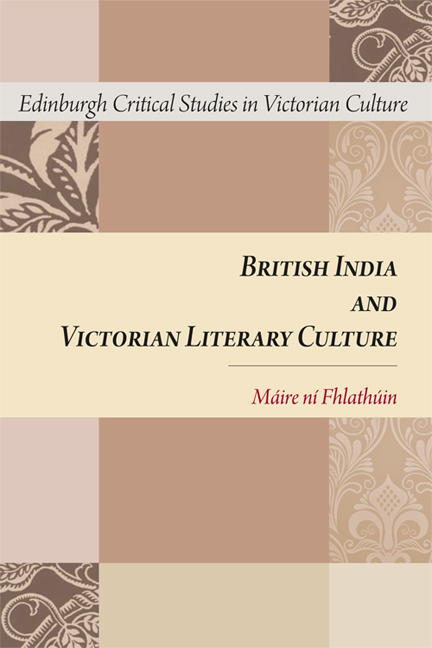3 - Consuming and Being Consumed
from Part I - Experiences of India
Published online by Cambridge University Press: 05 August 2016
Summary
Elizabeth Inchbald's farce The Mogul Tale: or, The Descent of the Balloon (1788) offered late eighteenth- century audiences the spectacle of three English travellers making a balloon journey. Blown off course, they find themselves in the land of the ‘Great Mogul’. On their arrival, they are overcome with panic – Fanny is afraid of being left alone ‘amongst tygers, land monsters, and sea monsters’ – although none of these entities makes an appearance, and the travellers are eventually permitted to depart unharmed. The notable point is that the travellers themselves are regarded with an equivalent fear by the inhabitants of India. The second lady of the seraglio, on seeing the balloon, exclaims that ‘I am afraid it is a great ravenous bird, coming to devour us.’
The literature of British India frequently represents British people as driven by the need to incorporate the material substance of India and / or Indians into themselves, while a contrapuntal narrative chronicles a fear of bodily disintegration or re- incorporation into the ‘other’, often depicted in fantasies of being consumed by the Indian landscape or its human or animal inhabitants. The dual portrayal of the British in India seen here in Inchbald's work (where the travellers are simultaneously potential consumers / predators and consumed / victims) has its origins in the political landscape of the second half of the eighteenth century. At this time, the question of Britain's role in India, with its accompanying stereotypes of India as simultaneously oppressed by British colonisers and a threat to them, was developed in the course of successive political debates, culminating in the impeachment of Warren Hastings on a variety of charges including those of personal and political corruption. The trial lasted from 1788 to 1795. Hastings was eventually acquitted of all charges, but the process focused public attention on the activities of the East India Company and its dealings with India, and aroused a rancorous debate carried out through the means of pamphlets and articles. The language of the debate about Hastings itself was steeped in tropes of predation, excess, and consumption, and, as I shall discuss below, its divided discourse of consumption spread throughout a wide range of literary forms in Victorian British India.
- Type
- Chapter
- Information
- British India and Victorian Literary Culture , pp. 55 - 92Publisher: Edinburgh University PressPrint publication year: 2015



